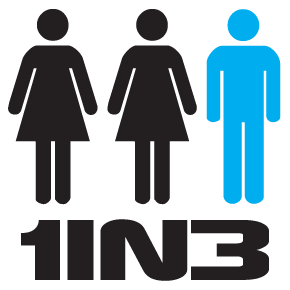NSW inquiry into coercive control in domestic relationships claims abusive heterosexual women don't control their partners except in rare cases
The NSW inquiry into coercive control in domestic relationships published its report this week.
The report contains the following sickeningly sexist (and factually incorrect) gendered analysis of coercive control. Apparently men and lesbian women can control their partners but heterosexual women are unable to do so except in (presumably) rare cases.

The report also cited testimony from the One in Three Campaign but used it as an example of a disabled victim (not a male victim), despite much of Mr Bennett's abuse while disabled being highly gendered (i.e. it wouldn't have happened to a disabled female).

The above quote also re-worded Mr Bennett's experience with the DOCS hotline, taking away the impact of what was really said. The actual quote from Hansard is as follows.
Can you imagine my horror when I rang New South Wales DOCS domestic abuse hotline and was told by the lady there, I was not really being abused as only men abuse women.
At least it appears any new legislation is to be non-gendered. However, we fear the raft of new training and education measures will follow the lie that coercive control is only perpetrated by men and lesbian women, providing greater barriers to heterosexual male victims seeking support.
Meanwhile in the UK, a sold-out online dissemination event on July 14th, held by the Criminal Justice Partnership, University of Central Lancashire, in conjunction with Mankind Initiative and Research England, will present the UK data from two recent international studies (Powney, Graham-Kevan & Willan 2020; Graham-Kevan & Powney, 2020) examining the types, levels and impact of coercive control as experienced by male victims.
The results show that not only do male victims experience coercive control in similar ways to women they also endure specific types of abuse because they are men. This report will help to demonstrate the need to include the experiences of male victims when considering service provision/responses, public policy, statutory guidance and in domestic abuse research more widely. This will support more men in coming forward, better funded by public services and more societal awareness – leading to more men and their children being able to escape and rebuild their lives.
The researchers will be publishing a similar report for the Australian dataset at a later date. This is the same data that a member of the NSW Committee questioned during One in Three's appearance at one of the inquiry's public hearings, asking offensively (while smirking at male victims under her breath) whether we believed that a woman who doesn't sleep with her male partner is using coercive control. We later provided evidence demonstrating that withholding sex as punishment is accepted by both male and female victim advocacy groups as a form of coercive control.
Sadly, it appears Australia has a lot of catching-up to do.
